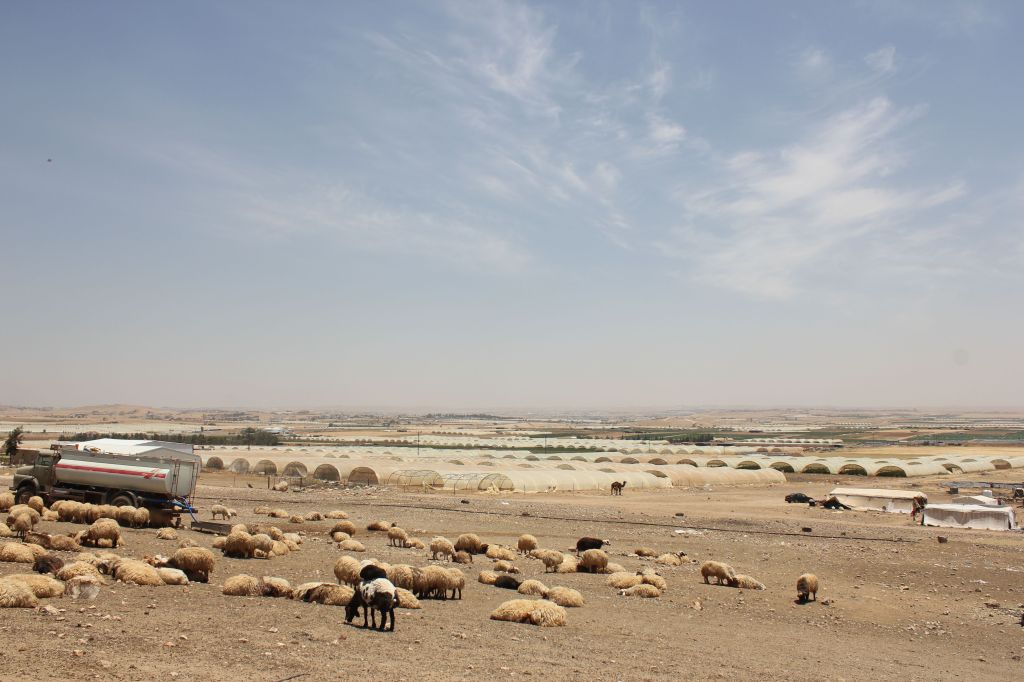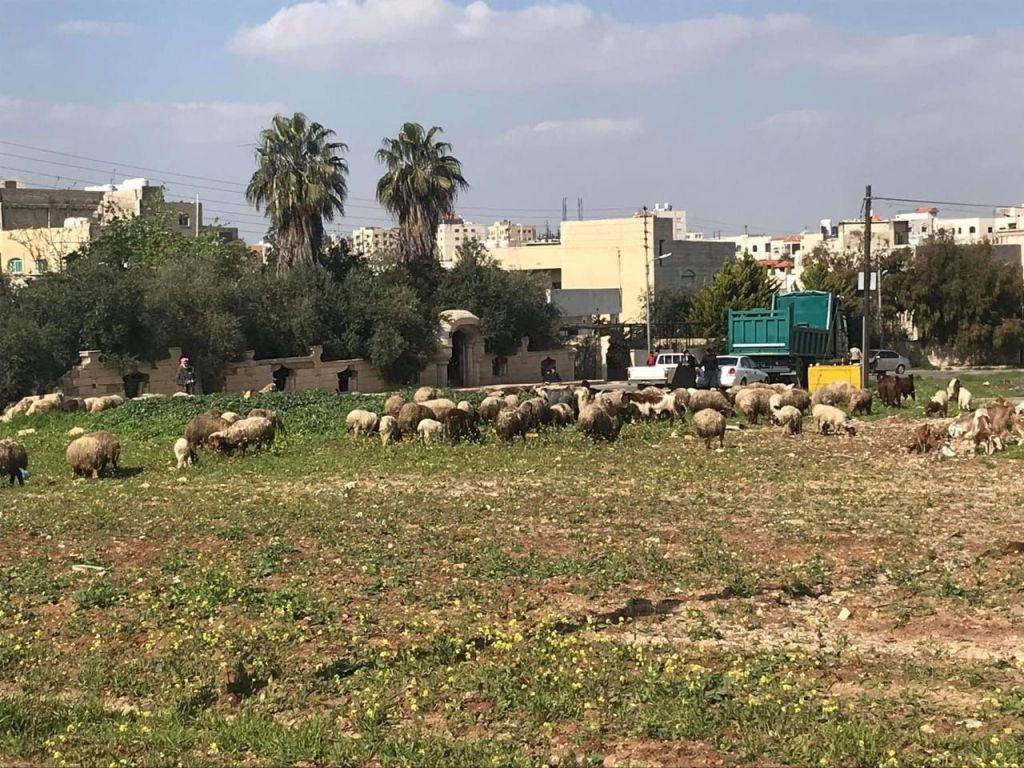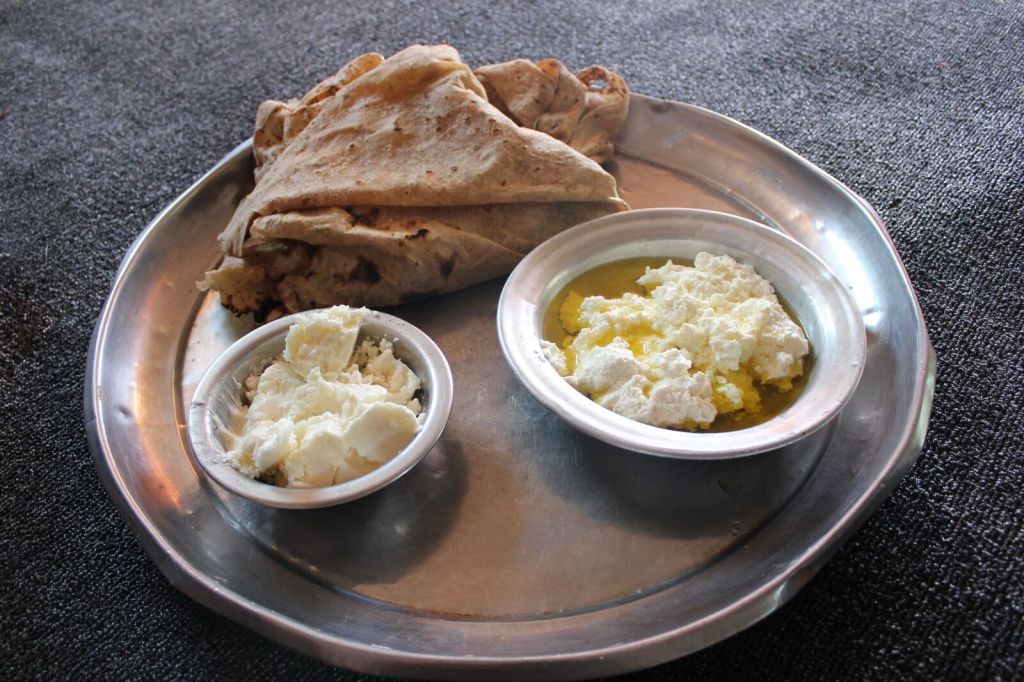Herding in a confined spring: Pastoralists in Jordan during the COVID-19 pandemic
Spring is blooming in the highlands of Jordan and the air is filling with the fragrant smells of iris and jasmine flowers. For pastoralists, these are the last months in which natural pastures are available but, as roughly half of the planet now, the people of the Hashemite Kingdom of Jordan are currently asked to stay indoors and limit their movements. How do shepherds and livestock owners deal with this situation? What does a confined country mean for pastoralists, including refugee pastoralists?
On March 18th, four days after the first case of coronavirus was declared in Jordan, the country went into one of the strictest lock-downs worldwide: all shops were closed, including grocery stores and pharmacies, and residents were strictly prohibited from stepping out of their homes. The army was charged with law enforcement and those who disobeyed the curfew faced imprisonment. Whilst some of these strict measures have eased off now, the lockdown is dealing a hard blow to the already stricken Jordanian economy, hitting the refugees and the poorest segments of the population the hardest.
SPRING PASTURES IN A SHORTAGE OF GRAZING RESOURCES

In the traditional Bedouin grazing management cycle, these are the last weeks before the Al-Tagreeb migration, when herders move up to the highlands or to the western part of the Badia (the arid and semi-arid steppes that cover 90% of the country) to graze on the fringe of agricultural areas. However, with the confiscation of tribal lands by the state, the encroachment of agriculture and protected areas into grazing areas, the widespread use of motored vehicles by pastoralists and the severe degradation of rangeland, this traditional mobility of herds has been eroded quite dramatically. Most of the settled, peri-urban pastoralists we have met in the context of this research are grazing a few hours of walk away from their house, at most. In this context, however, those remaining spaces of movement are precious, particularly so during spring, where pastures are at their most plentiful.
SYRIAN SHEPHERDS UNDER COVID-19

Abu Mustafa (anonymised), his wife and their young children live in an informal tented settlement, around the farms of Al-Izra university, south of Amman. In 2013, they escaped to Jordan with their three young kids, leaving behind them their life of wealthy livestock owners in Hama, western Syria. They spent their first years in the refugee camp of Zaatari, working in the agricultural sector as daily labourers, as well as in more risky ventures. After three years of hard work, they had saved enough money to buy their first animals. They have been doing well for themselves since then: three healthy kids have been born and they have grown in livestock capital and independence. Last year, Abu Mustafa was recruited as a shepherd by a wealthy Jordanian livestock owner who allowed him to graze his animals together with his own. For his work, he got free access to grazing land, feeds, water, as well as a camping site with water and electricity for his family. The situation was bringing many advantages: protection from a powerful local figure, as well as savings on important, essential expenses. But when Jordan went into lockdown, the inequalities of the deal were laid bare. “I was the one supposed to be in the dangerous outside world”, explained Abu Mustafa, “going far with the 100 animals, whilst my [Jordanian] partner (sic) was just sitting home safely. I decided to leave him and go back to where I used to live when you first met me. With my 20 animals and that’s it”.
LIVESTOCK PRODUCTION AND COMMERCIALISATION IN CONFINEMENT

All the livestock herders we talked to said they were still able to graze their animals outside, as long as they stayed relatively close to their home. “It’s OK for now”, a Jordanian who owns some ten goats and sheep commented, “but we just hope the lockdown doesn’t stay on for too long because, at some point, we will need to take our animals to other grazing fields, outside of our neighbourhood”.
Livestock owners are also worried about the closure of mills, and the related difficulty to gain access to concentrate feeds. It is mostly the wealthier livestock owners who are affected, however; in particular those engaging in transnational sales, who are busy fattening up their animals for Eid Al-Adha. At this time of year, sheep are sold to Saudi Arabia or to the United Arab Emirates for prices as high as 250 to 300 Jds (US$350 to US$420). For these large flocks, natural pastures are generally insufficient and access to concentrate feeds is critical.

The small to medium livestock owners are more concerned about the difficulty to commercialise milk: while they are in the middle of the milking season, only a handful of milk traders, or jabans, are operating and they are taking advantage of the situation to buy milk at nearly half the normal price. Jabans have a special position of power as pastoralists’ main source of informal credit: jabans lend money to herders at the beginning of winter when they need to buy concentrate feeds and get refunded in milk during the milking season. As a result, all of those who borrowed from them last winter now must sell their milk at these disadvantageous prices. Those who are not locked in this unequal deal are trying to avoid waste, by making jibneh beida, a salty cheese that can be preserved for months. If extended, the closure of markets could represent a major challenge. Meat markets had been fairly quiet in the past few weeks as most livestock owners were holding off on animal sales until Ramadan when demand and prices rise. With the holy month having started now, the uncertainty as to how they will be able to commercialise their meat and milk and at which price is a source of concern.
Despite these challenges, there are clear advantages to being a pastoralist in these difficult times. Unable to work from home, underprivileged workers from the sectors of construction, manufacturing, retail and so on are currently cut off from their only source of income. Whilst these jobs can represent an important complementary income for poor pastoralists as well, at least shepherds can continue with their herding jobs and small-scale livestock owners can count on the food production and the safety nets ensured by their herd or flock. As far as refugees are concerned, the suspension of all non-essential international aid tends to affect pastoralists less than their fellow citizens, since they were already mostly or fully independent from it already. Herders’ ability to get through this crisis without too much loss and suffering will, nevertheless, depend on the length of the crisis and on the flexibility of authorities towards their activities.